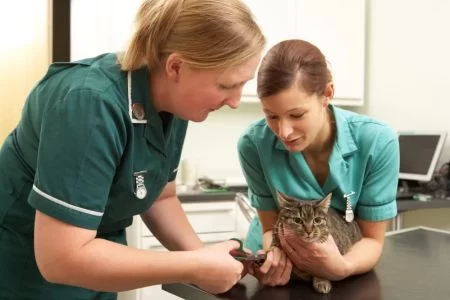- 1-early-education-and-high-school-preparation
- 2-undergraduate-degree-and-pre-veterinary-requirements
- 3-veterinary-school-and-professional-training
- 4-additional-certifications-and-continuing-education
- 5-personal-story-and-professional-insight
- 6-taking-the-next-step-in-your-veterinary-career
1. Early Education and High School Preparation
Understanding what level of schooling is necessary to become a veterinarian starts long before college. High school students aspiring to become veterinarians should focus on building a strong foundation in sciences like biology, chemistry, and physics. Advanced placement courses and participation in science clubs or internships at animal clinics can provide early exposure to the field.
Taking math courses seriously also matters, as veterinary medicine requires understanding of statistics and other quantitative subjects. Schools offering practical lab work help students develop essential skills and prepare mentally for the rigorous demands ahead.
1.1 Building a Passion for Animal Care Early
A genuine interest in animals and their health during early schooling often distinguishes successful veterinary candidates. Volunteering at shelters or shadowing vets can reinforce this passion, providing real-world experience that complements academic preparation.
2. Undergraduate Degree and Pre-Veterinary Requirements
After high school, the next critical step is earning an undergraduate degree. While there is no universally mandated major, most aspiring vets choose degrees in biology, animal science, or related fields to meet prerequisite coursework required for veterinary school admission.
Common prerequisites include courses in general biology, organic chemistry, physics, biochemistry, and microbiology. These build the scientific background essential for understanding animal physiology and disease. GPA and extracurricular involvement, such as research or veterinary internships, also heavily influence veterinary school acceptance.
2.1 The Importance of Undergraduate Performance
Veterinary schools are highly competitive, and students with strong academic records and diverse experiences stand out. Balancing coursework with hands-on experience develops both theoretical knowledge and practical skills, setting a strong foundation for professional training.
3. Veterinary School and Professional Training
The core of veterinary education lies in veterinary school, typically a four-year program leading to a Doctor of Veterinary Medicine (DVM) degree. This rigorous curriculum combines classroom instruction with extensive clinical practice, covering anatomy, pharmacology, surgery, and disease prevention.
During clinical rotations, students gain hands-on experience treating various species under the supervision of licensed veterinarians. This phase is crucial for developing diagnostic skills and building confidence to handle real-world cases.
3.1 Licensing and Exams
After earning a DVM, graduates must pass the North American Veterinary Licensing Examination (NAVLE) or its equivalent in other countries. This exam ensures veterinarians meet professional standards before practicing independently.
4. Additional Certifications and Continuing Education
Many veterinarians choose to pursue specialized certifications, such as in surgery, dermatology, or exotic animal care. These require additional training and examinations but can enhance career opportunities and expertise.
Continuing education is mandatory to keep licenses current and stay updated with evolving medical knowledge. Attending conferences, workshops, and advanced courses helps vets maintain high standards of care.
5. Personal Story and Professional Insight
Dr. Emily, a practicing veterinarian, recalls her journey vividly: “From volunteering at a local shelter in high school to the intense years in vet school, every stage required dedication. The schooling level necessary to become a veterinarian is demanding, but the reward of saving animal lives and educating owners is immeasurable.” Her story highlights how perseverance and passion fuel success.
Real-world cases, like her work in wildlife rehabilitation, also demonstrate how veterinary education prepares professionals to adapt across diverse settings, whether clinics, farms, or conservation projects.
6. Taking the Next Step in Your Veterinary Career
If you’re wondering what level of schooling is necessary to become a veterinarian and feel ready to embark on this rewarding path, it’s crucial to start planning early and seek resources tailored to your needs. Finding quality textbooks, study guides, and prep materials can make a significant difference.
Our website offers carefully curated veterinary education products designed to support students at every step — from pre-veterinary prerequisites to exam preparation. Investing in these tools can increase your confidence and readiness, bringing you closer to your dream career in veterinary medicine.












